Kare11
4th-generation small-town shoe store has worldwide following
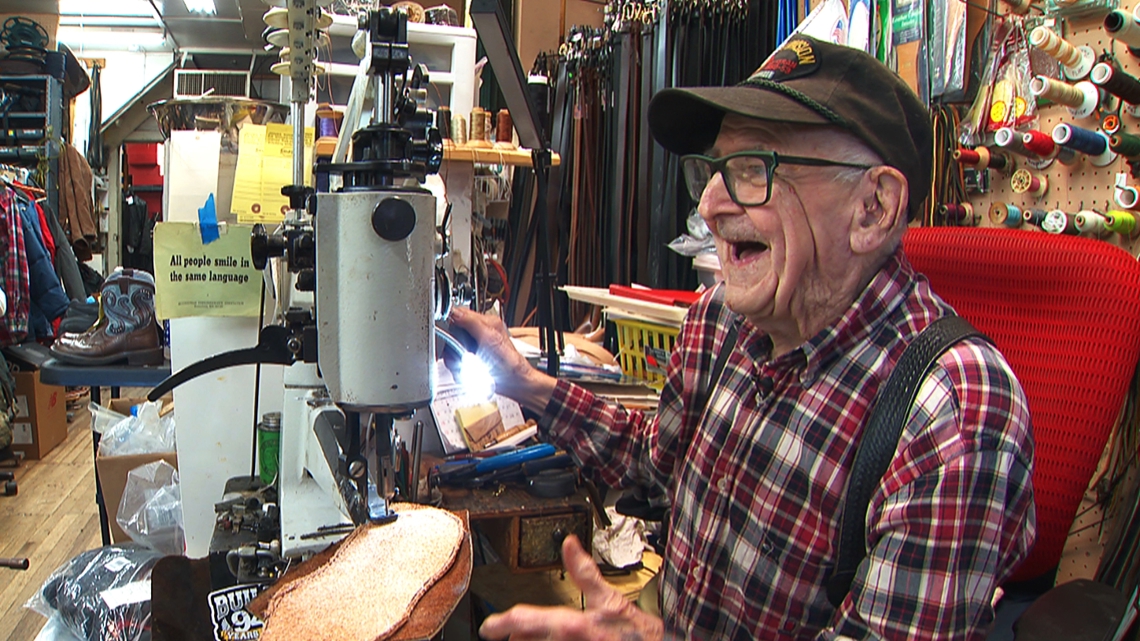
Despite the lack of a website, Weaver’s Leather Store has customers coming from near and far.
BUFFALO CENTER, Iowa — You’ve heard the stories from rural America about struggling stores on small-town main streets.
This is not one of those.
“This machine probably was built about 1930s,” Tim Weaver says as he stitches a new sole on a pair of well-worn cowboy boots.
That Tim is coaxing a Depression-era sewing machine toward its second century of service is not the feat that brought us seven miles south of the Minnesota border to Buffalo Center, Iowa — population 850.
The feat that brought us here is the feet that have brought Weaver’s Leather Store to a milestone.

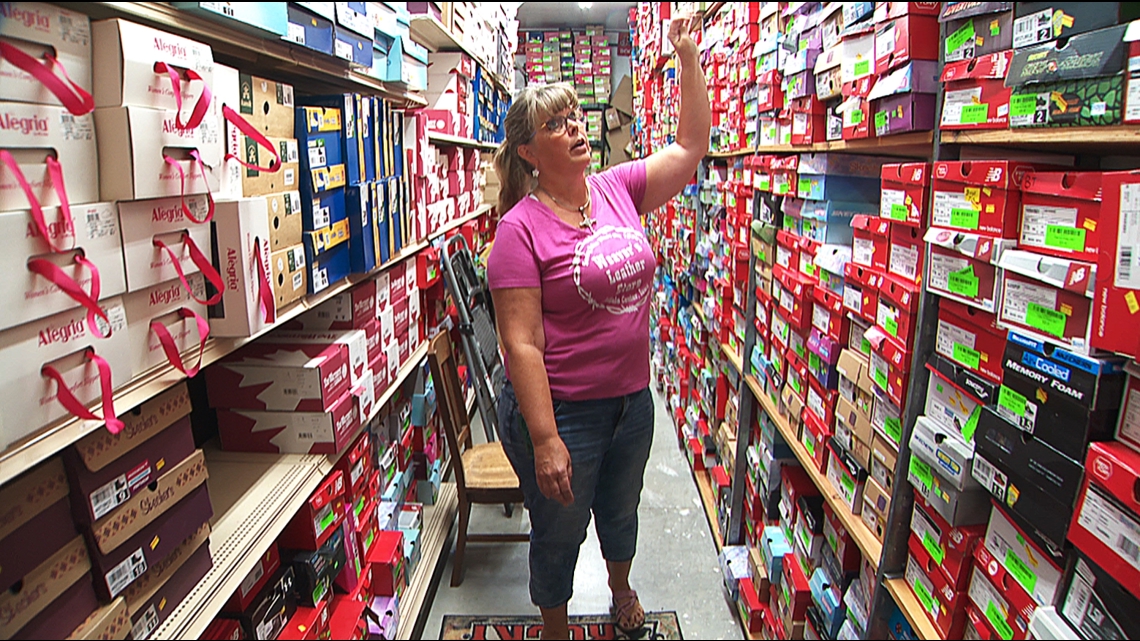
“We’re coming up 100 years, next year,” Tim says.
It isn’t Weaver’s only significant number.
“We’re probably close to 13,000,” Julie Weaver, Tim’s wife, says as she passes through a door at the back of the store.
Stacked floor to rafters are 13,000 pairs of shoes.
“It goes and goes,” Julie says as she passes between stacks of shoes in the original Weaver’s store and a series of additions.
“We’re a little full,” Julie admits. “Tim had a salesman tell him one time you can never sell an empty shelf.”
Tim took the advice to heart, stocking Weaver’s shelves with roughly 15 pairs of shoes for every man, woman, and child in town.
That statistic, however, is a bit misleading, because Weaver’s knows no borders.
“We have shoes in every state,” Tim says.


Hundreds of colored pins on a map behind the cash register show the extent of Weaver’s reach.
Nearby, scores of additional pins dot a map of the world.
Not especially impressive, one might think, in the age of online sales.
But consider this: “Never had a website,” Tim says. “Just word of mouth and people coming in.”
Weaver’s business model has strayed little from the one Tim’s father subscribed to when he took over the store 74 years ago.
Tim keeps a picture of his dad above his workstation.
He keeps another reminder of his father even closer.
“That’s me,” laughs Tim’s 94-year-old dad, seated at a sewing machine a few feet from his son.

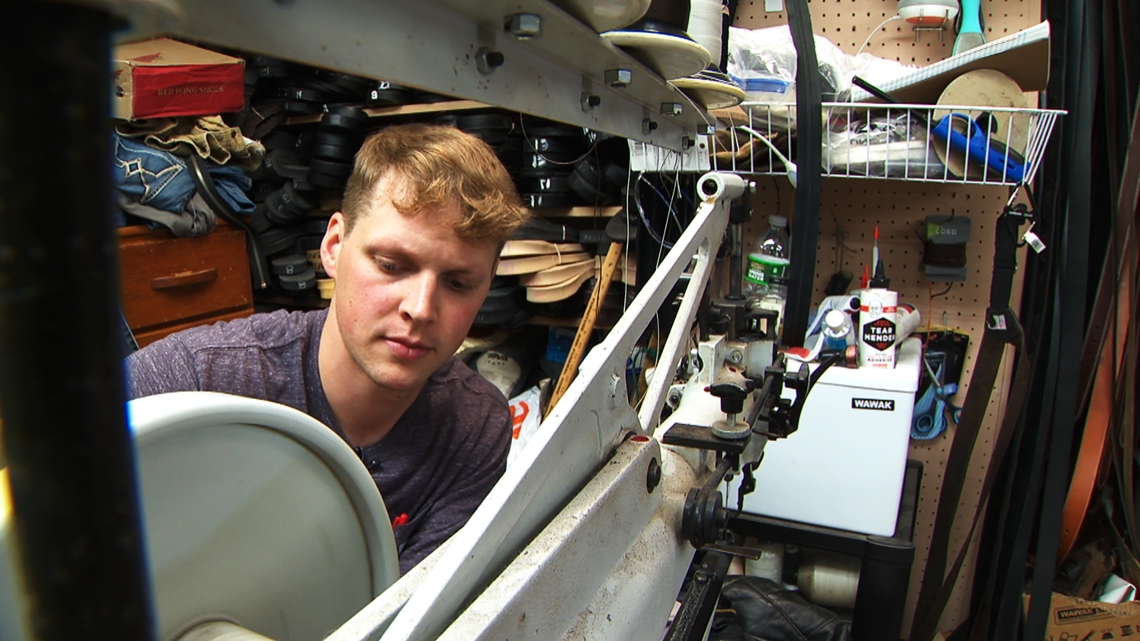
Three decades past the typical age of retirement, LeRoy Weaver can’t stay away.
“Monday through Saturday, he comes to work with me every day yet,” Tim says as his dad sews replacement leather pieces into worn work boots.
LeRoy blames “a little stubbornness” for his decision to continue working.
He was 19 when his father, Ted Weaver, died of cancer, leaving LeRoy to take over the store his dad founded in 1925.
Except for the two years he served in the Korean War, LeRoy has been a fixture here.
If you’re keeping tabs, that’s three generations of Weavers who’ve kept the store afloat.
But that’s not the end of it.
“I’m the fourth generation and I’m Colin Weaver,” says the young man busily sewing a zipper into a winter jacket.

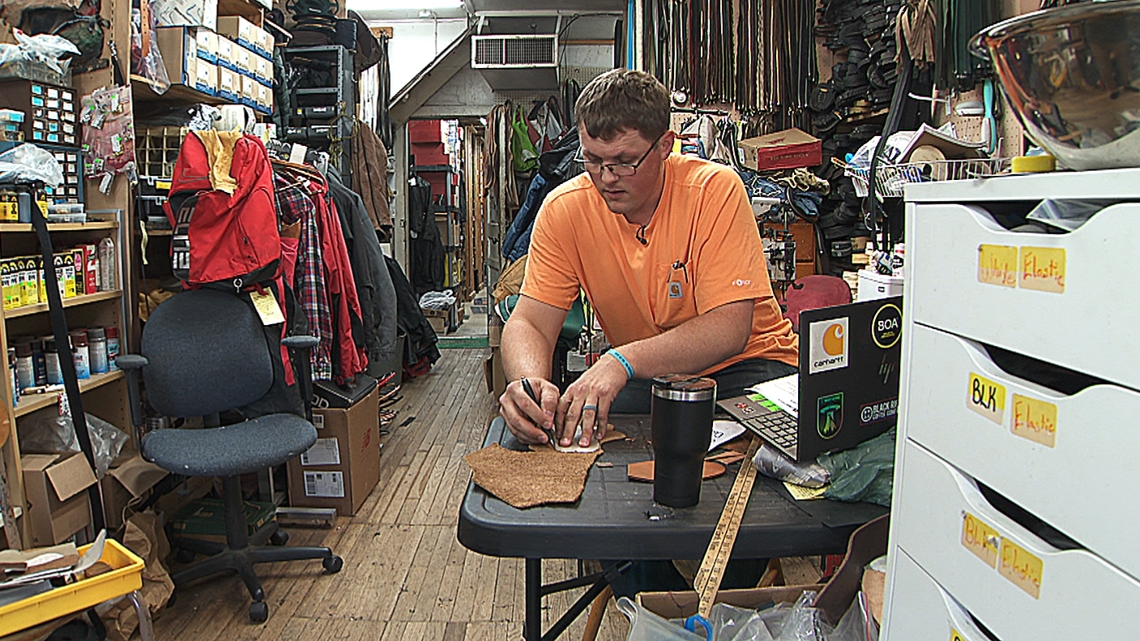
Colin, 26, and his 29-year-old brother Tanner intend, someday, to take over the store themselves.
“This is my thing,” Tanner says as he cuts leather pieces for a pliers holder. “Helping people, that’s what I like to do.”
Colin says he was weighing his options in college before realizing, “I wouldn’t be able to find anything I’m passionate about like this.”
It’s a passion that keeps Colin’s aunt Carolyn busy, too.
“I rip out zippers,” she says. “There isn’t people who do this anymore, they throw things. We live in a throwaway country. Not here,” Carolyn continues. “You save the unsavable.”
The same could be said for Weaver’s Leather, the kind of small-town store that shouldn’t have survived — yet thrives.
“It is very unique,” Tim agrees.
No matter how busy, every day three generations of Weavers walk up their rural main street to the grocery store coffee shop, under the guise of drinking coffee and talking shop.
Yet, the Weavers all know it’s something deeper when the business conversation includes three generations.
“Not too many people can say that. It’s an honor,” Tim says, his voice tinged with emotion. “That’s what we’re here for, keep the generations going.”

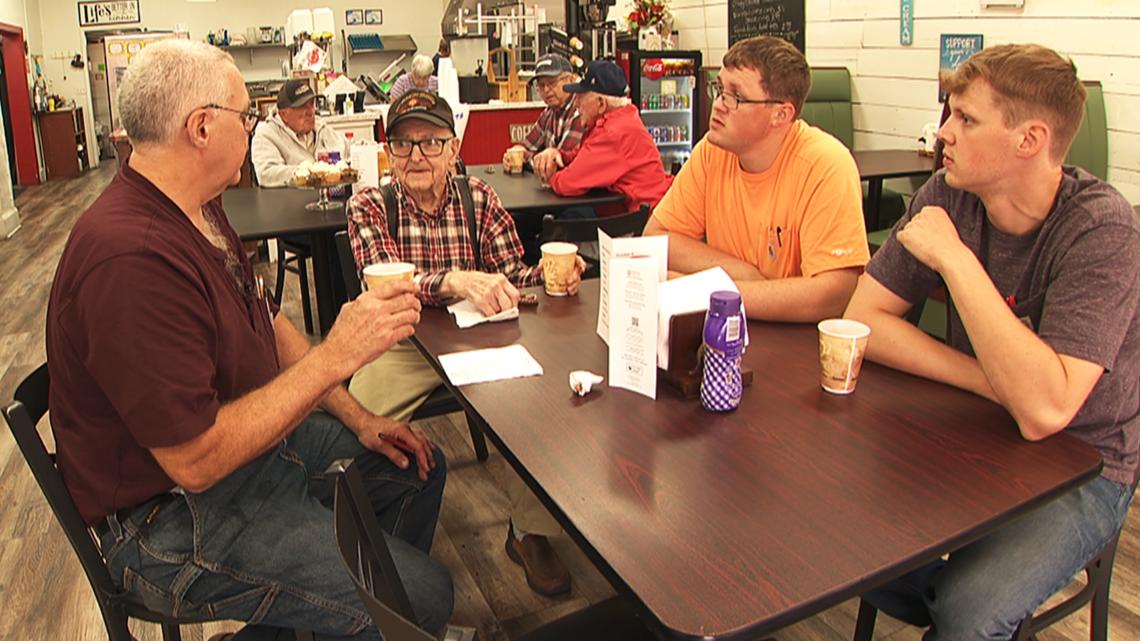
In small towns across America, businesses come and, too often, go with the seasons.
So, how appropriate that the strong fabric of Buffalo Center depends on Weavers.
Editor’s Note: Though Weaver’s Leather Store has yet to create a business website, it does have a Facebook page you can access by clicking here.
Boyd Huppert is always looking for great stories to share in the Land of 10,000 Stories! Send us your suggestions by filling out this form.
Kare11
Jingle Bell Run to raise awareness about kids with arthritis
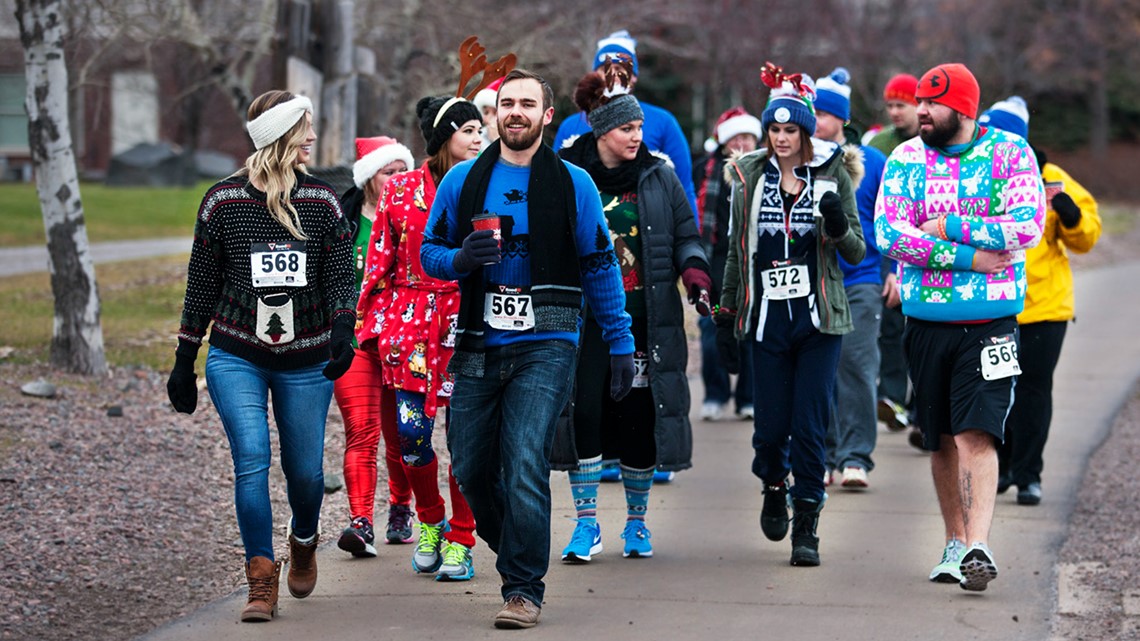

This year’s 5k at U.S. Bank Stadium is set for Sunday, Nov. 24.
MINNEAPOLIS — Did you know nearly 300,000 kids and teens live with arthritis in the U.S.?
An annual event in the Twin Cities raises awareness and money for children with arthritis.
This year’s 5k Jingle Bell Run at U.S. Bank Stadium is set for Sunday, Nov. 24.
Arthritis Foundation honorees, Calvin Gerber and Rod Van Hoof joined KARE 11 News at 4 to discuss the upcoming event.
Kare11
Businesses at George Floyd Square sue Minneapolis – again


The owners argue that the city’s failure to address deterioration and crime in the neighborhood has ruined their businesses. They are asking for $30M in damages.
MINNEAPOLIS — Several business owners at the struggling corner where George Floyd was murdered by a Minneapolis police officer in 2020 are suing the city to demand it take over their properties and compensate them.
The owners of the Cup Foods convenience store and other businesses operating near 38th Street and Chicago Avenue argue that the city’s failure to address deterioration and crime in the neighborhood has ruined their businesses and constitutes an unlawful taking of their property without just compensation, the Minnesota Star Tribune reported Thursday. They’re seeking $30 million in damages.
The area, now known as George Floyd Square, has become a place of pilgrimage for social justice supporters from across the country, and the store has renamed itself Unity Foods. But business owners say they haven’t benefitted, while activists and officials remain divided over how to transform the intersection while keeping it as a permanent memorial.
Floyd died after a white officer pinned his neck to the pavement outside Cup Foods for 9 1/2 minutes despite the Black man’s pleas of “I can’t breathe.” The ensuing protests, which turned violent at times, tested the leadership of Gov. Tim Walz at one of the state’s most consequential moments, and sparking a nationwide reckoning over racism and police misconduct. The officer, Derek Chauvin, was convicted of murder.
The legal action, filed last week in Hennepin County District Court, argues that the businesses have lost revenue, real estate value, reputation, and tenant and rental income. It argues that the city’s decisions led to higher crime and created a “no go zone” for police in the area. It replaces an earlier lawsuit by the businesses that was dismissed two months ago.
Michael Healey, the lawyer representing the businesses, told the Star Tribune there are two possible outcomes. The businesses “could conceivably keep the property if a settlement is reached with the city on the diminished value,” he said. The other possibility is that the city could begin the process of taking the properties and compensating the owners.
A city spokesperson said in a statement that while it can’t comment on pending litigation, the city “understands the challenges that residents and businesses have confronted in the wake of George Floyd’s murder.“
Kare11
Meatpacker to pay $2M for alleged MN child labor violations
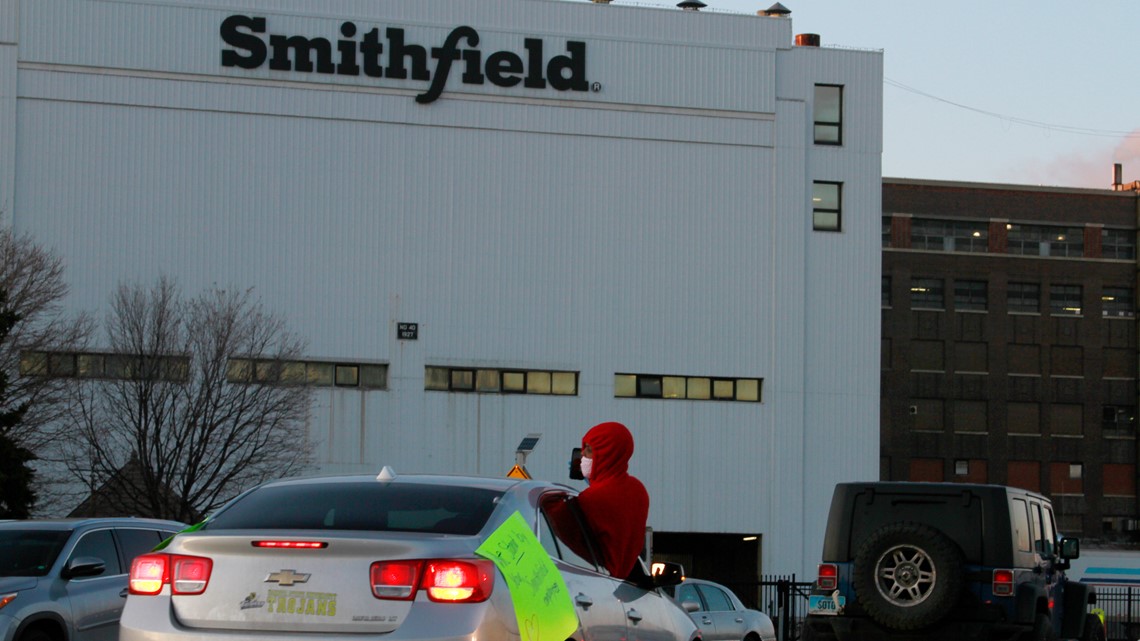

The Department of Labor and Industry (DLI) says Smithfield Packaged Meats Corp. employed at least 11 children ages 14-17 at its St. James plant.
ST JAMES, Minn. — A national meatpacking company will pay a fine of $2 million for alleged child labor violations at its plant in St. James, Minn.
The Minnesota Department of Labor and Industry (DLI) announced the consent order signed by Smithfield Packaged Meats Corp., on Nov. 13, which includes the largest penalty ever recovered by the agency.
DLI conducted an investigation that covered two years between April 13, 2021, and April 13, 2023. Investigators allege that Smithfield employed at least 11 children between the ages of 14 and 17 at the St. James plant during that time, three who started working for the company when they were 14.
Among the other violations cited by DLI:
- Smithfield allowed nine of the 11 minor children to work after the hours allowed by state law – after 9 p.m. for those under 16 years old and after 11 p.m. before a school day for those 16 or 17 years old.
- All 11 minor children performed hazardous work for Smithfield, including working near chemicals or other hazardous substances, operating power-driven machinery (meat grinders, slicers and power-driven conveyor belts), and operating nonautomatic elevators, lifts or hoisting machines, including motorized pallet jacks and lift pallet jacks.
“It is unacceptable for a company to employ minor children to perform hazardous work late at night. This illegal behavior impacts children’s health, safety and well-being and their ability to focus on their education and their future,” said DLI Commissioner Nicole Blissenbach.
“DLI’s resolution with Smithfield sends a strong message to employers, including in the meat processing industry, that child labor violations will not be tolerated in Minnesota.”
While agreeing to the $2 million fine, Smithfield made clear in the consent order documents that the company disputes the allegations by DLI and denies violating Minnesota child labor laws.
Along with the fine, the consent order requires Smithfield to conduct industry outreach related to child labor compliance, require child labor compliance from its staffing agencies and sanitation contractors, and take other steps to ensure future child labor compliance.
To submit a child labor complaint or to ask questions about child labor restrictions and requirements, contact DLI’s Labor Standards Division by calling 651-284-5075 or via email.




